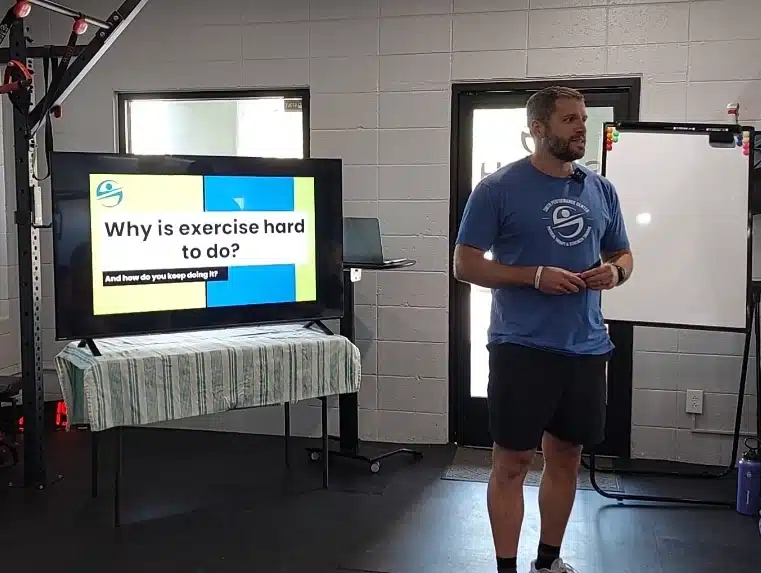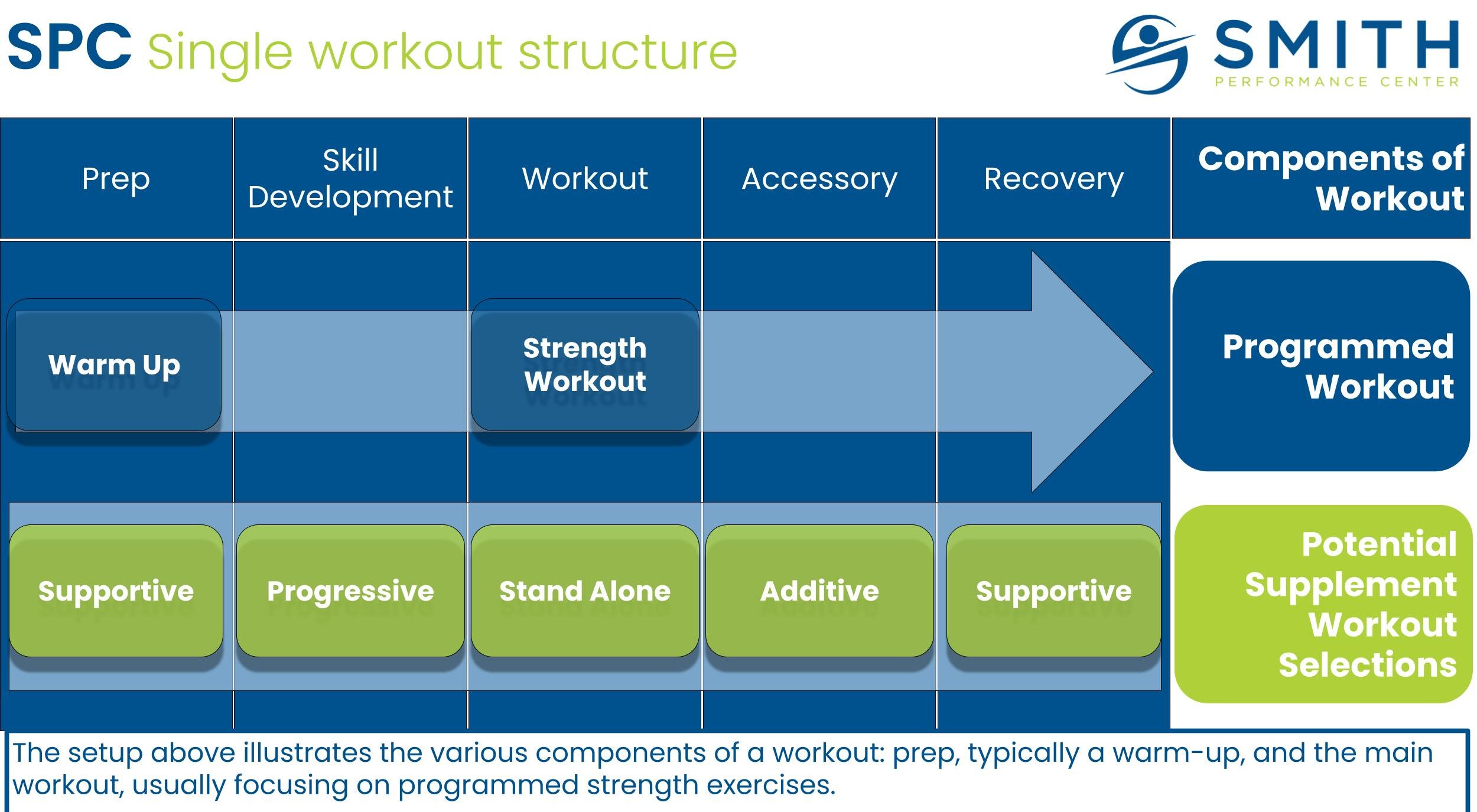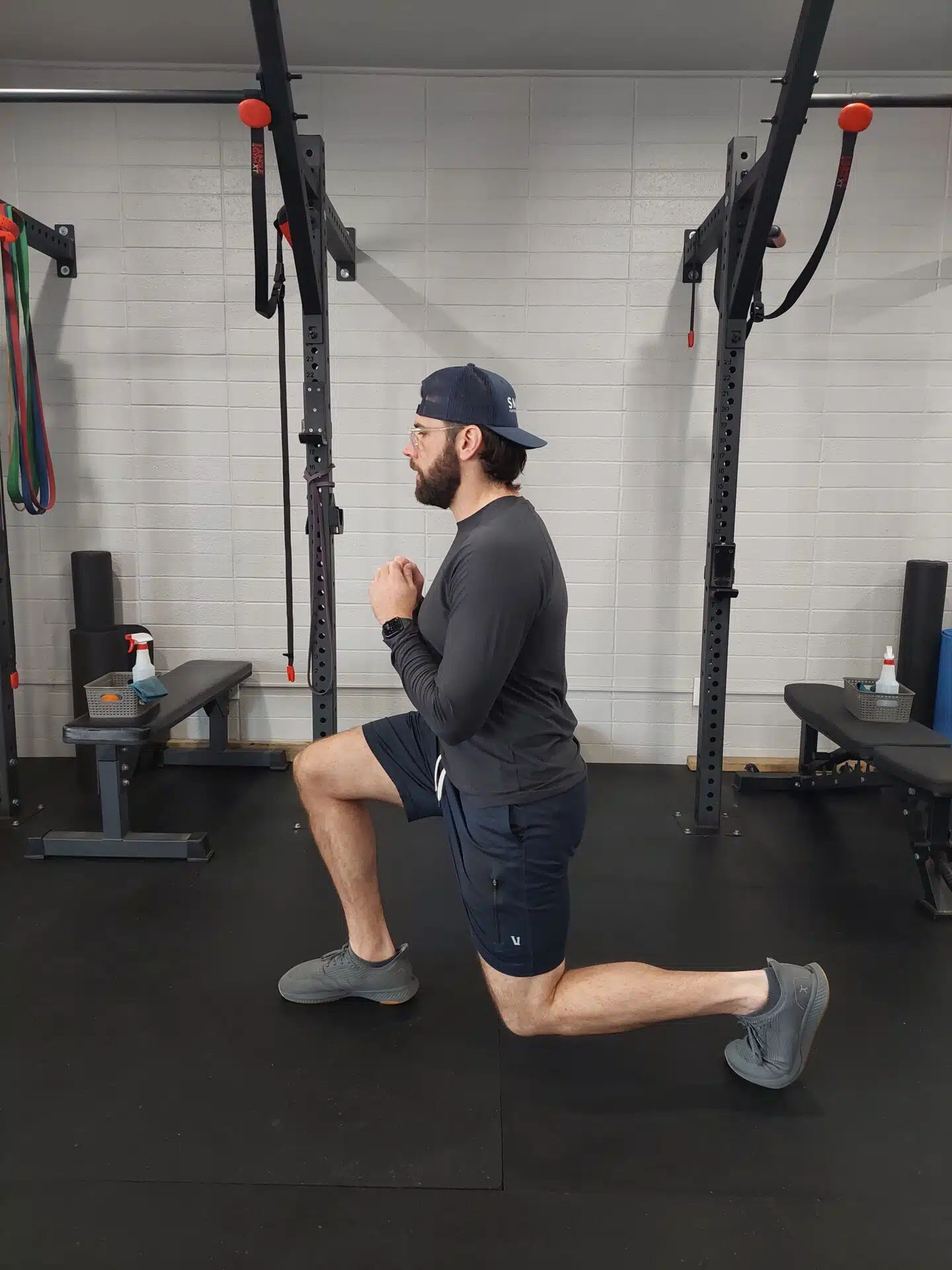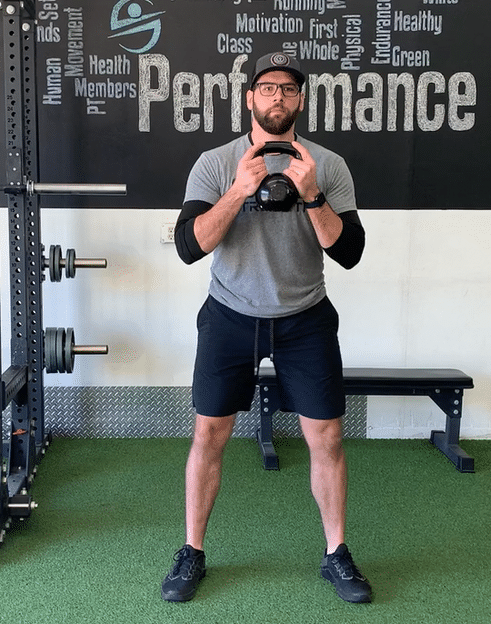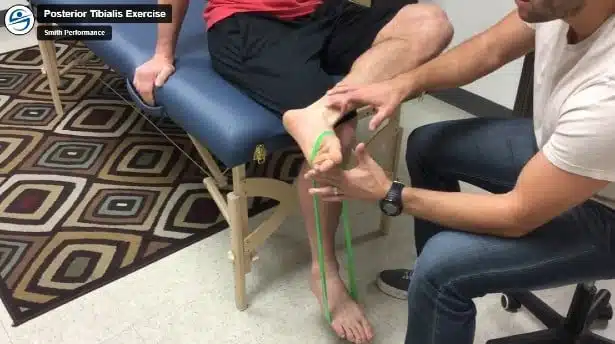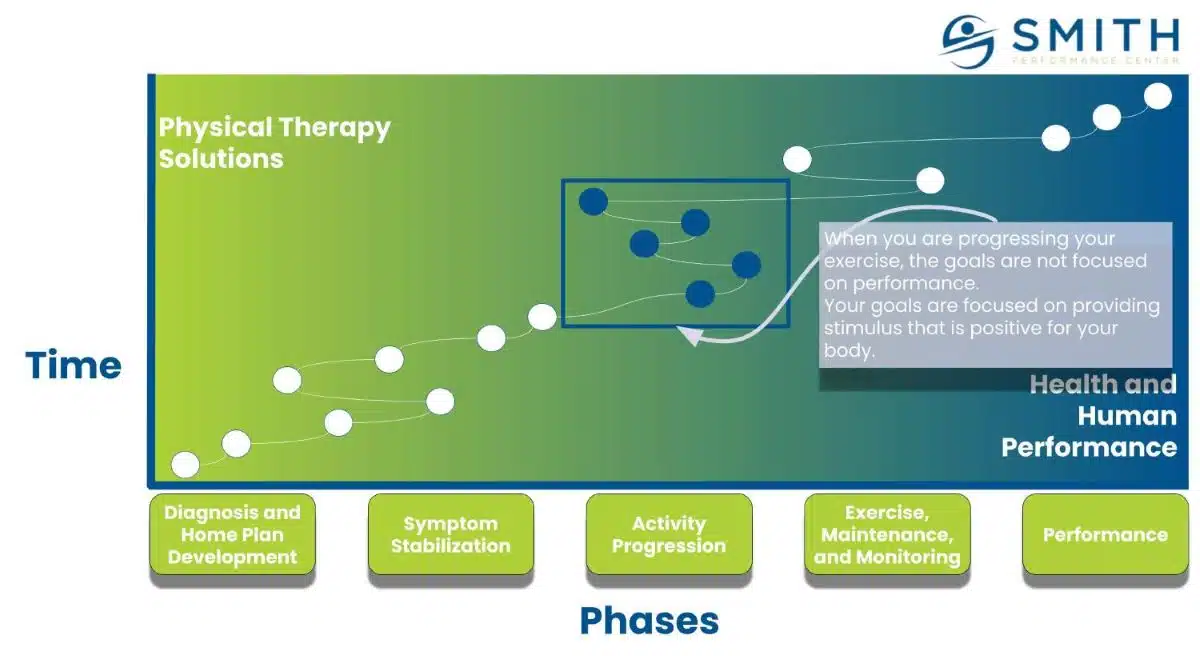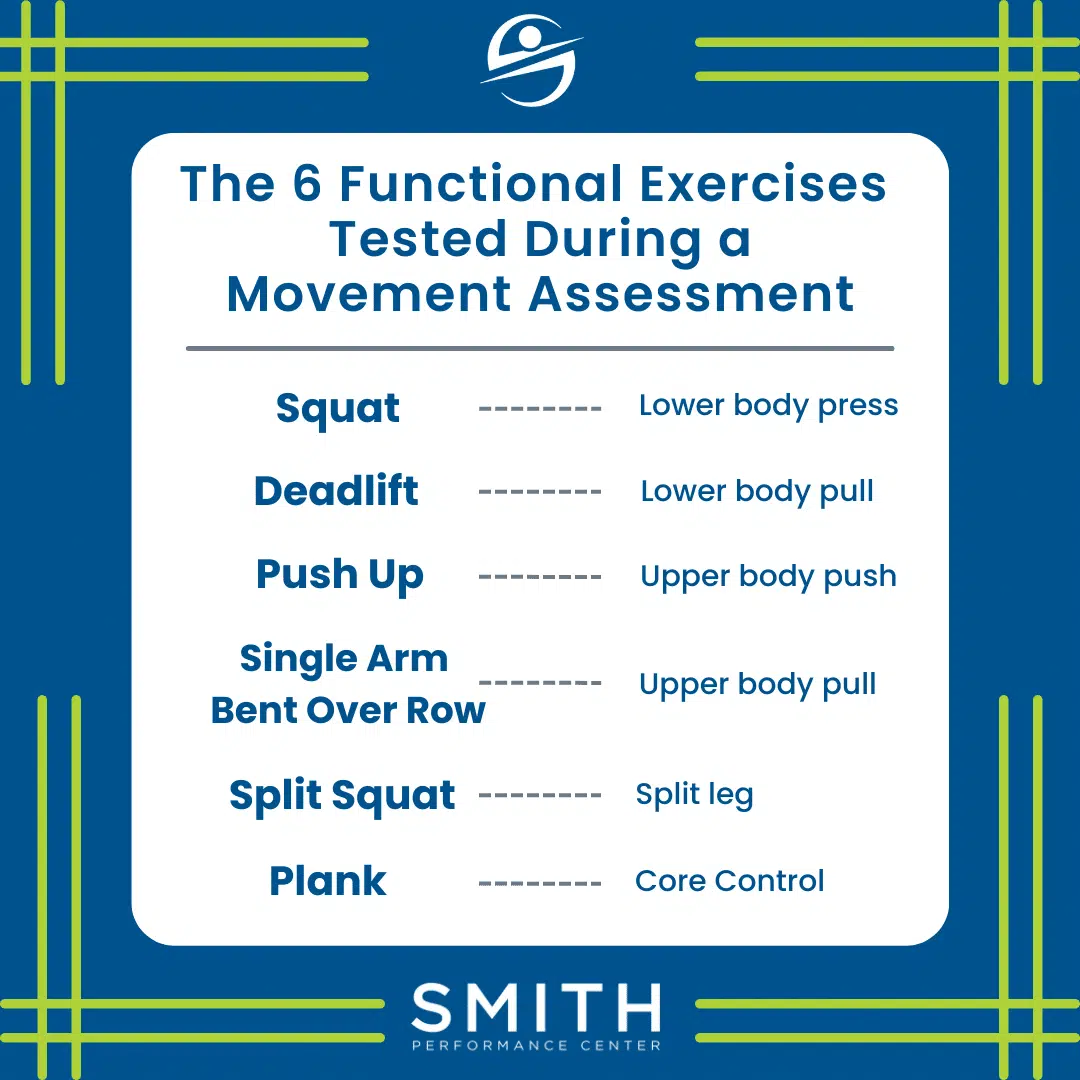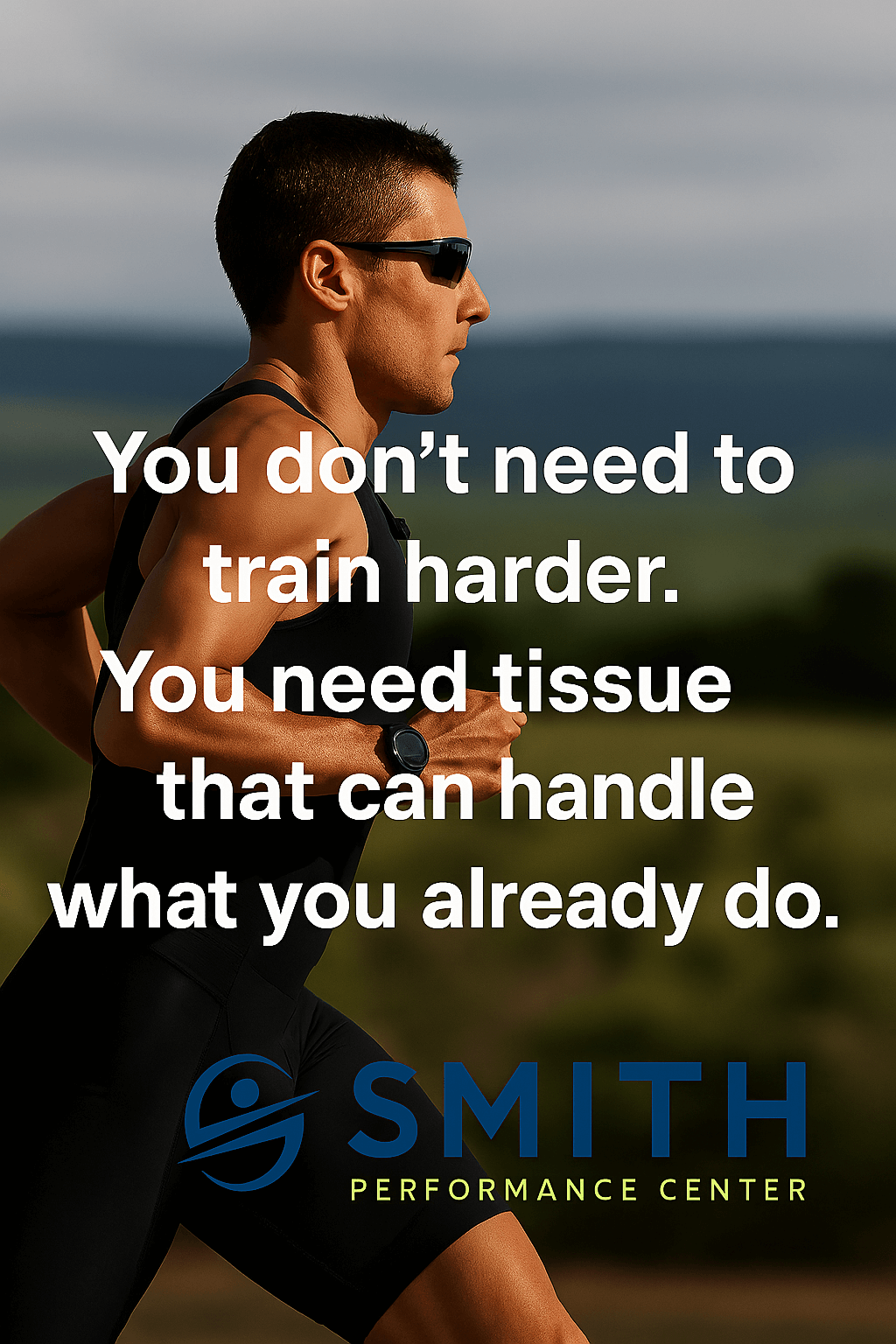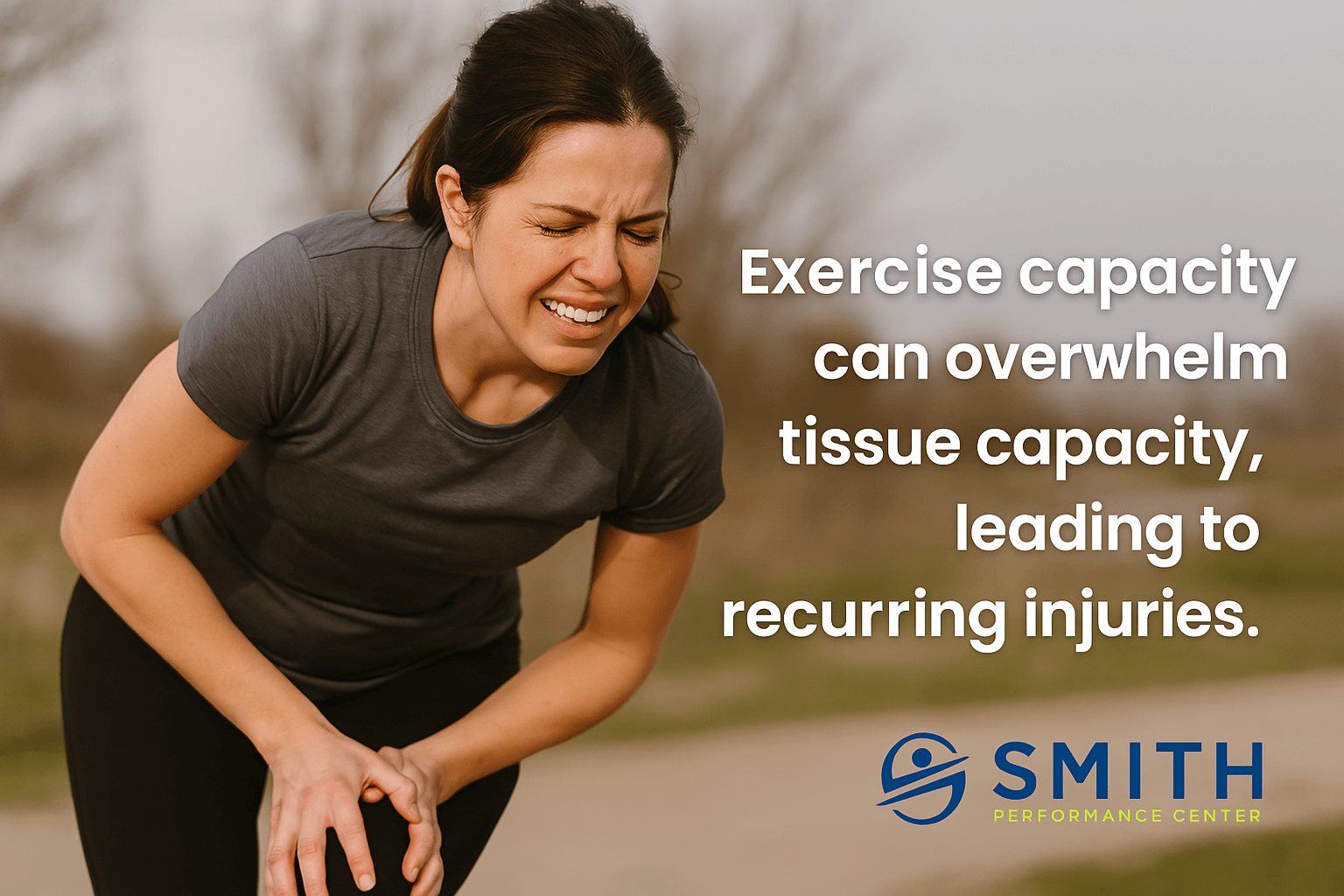
Tissue Capacity vs. Exercise Capacity: Why Most People Miss the Mark
You’re Doing the Work—So Why Does Your Body Keep Breaking Down? You show up. You put in the effort. Whether it’s running, lifting, group fitness, or weekend hikes, you’re trying to stay active. But despite the commitment, you keep dealing with recurring injury from exercise. Pain shows up, progress stalls, and your body feels more unpredictable than it should. This isn’t about motivation. It’s about biology.The real issue is a mismatch between what you can make yourself do and what your body is built to tolerate. At Smith Performance Center, we call that gap the difference between exercise capacity and tissue capacity the rehab standard—and it’s one of the most overlooked problems in rehab and training. What Is Exercise Capacity? Exercise capacity is your ability to push through effort and accumulate work over time. It’s what most people think of as “fitness.” It includes: Exercise capacity reflects what you’re capable

